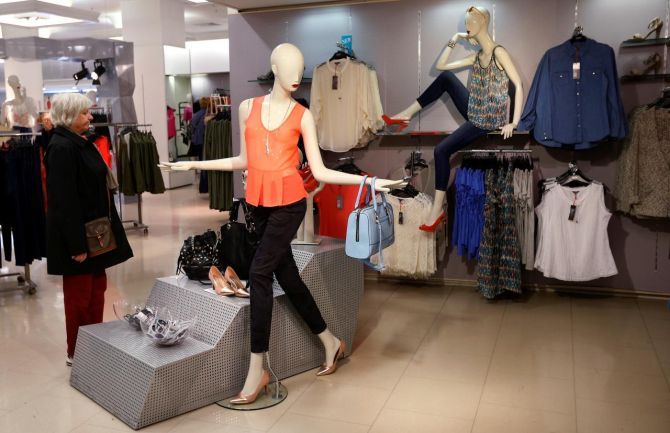The Cabinet approval would help more than 200 fashion and apparel brands who are lined up to enter India, including international labels such as Avva, Colin’s, Damat, Tudba Deri and Dufy

Allowing 100 per cent foreign direct investment (FDI) in single-brand retail via the automatic route might not be enough to get global giant Apple to set up shop in India, experts say.
International fashion brands and white goods companies would find the tweaks in the norms enticing enough to enter India.
But high-end electronics manufacturers, who have been asking to be kept out of the mandatory 30 per cent domestic sourcing clause, might still stay away.
“Apple has a completely different set of problems which cannot be solved by the changes being brought in,” said a senior executive from a major retail chain.
“Till the local sourcing clause is removed, no such tweaks would be enough to bring these companies to India.”
The government has also relaxed mandatory local sourcing requirement of 30 per cent, which has been a long-standing demand from players such as Ikea and H&M.
Under the relaxed norms, a foreign retailer will be able to get credit from incremental increase in sourcing for its global operations from India towards the mandatory 30 per cent local sourcing requirement for its business in the country.
The government also allowed single brand retail trading entity to set off its additional sourcing of goods from India for global operations during initial five years, beginning April 1 of the year of the opening of first store against the mandatory sourcing requirement of 30 percent of purchases from India.
However, industry experts said that same relaxation should be continued for period beyond the initials five years.
“We are happy to hear about the India sourcing requirement being offset towards H&M’s global sourcing from India, while it is in the right direction, we look forward to the same relaxation for the period beyond the initials five years as well, in view of ease of doing business in India” Janne Einola country manager H&M India Retail.
The Cabinet approval would help more than 200 fashion and apparel brands who are lined up to enter India, including international labels such as Avva, Colin’s, Damat, Tudba Deri and Dufy, according to market sources.
“Normally, most brands prefer having a local partner because they know the nuances on the ground. Some brands such as H&M and Decathlon came on their own,” Rajesh Jain, MD and CEO of Lacoste India.
“Now they do not have to apply to the government and wait for approval, because even if it is a formality, it still took a lot of time for them to get the final nod. That timeline will go away, so many brands might want to enter India. Not that it will give a major push but it would be incremental.”
After complaints from fashion major H&M and furniture giant Ikea on the 30 per cent mandatory local sourcing norms, the government had eased the provision.
Experts were also hoping for a revival push to the retail sector.
“After a prolonged period of slowdown in the retail sector over the past few years, we saw a strong comeback, with developers and investors betting high on the sector.
"Retail saw significant increase in PE investments in fiscal 2017, indicating a significant growth in retail real estate in the coming years. Today's decision will further speed this up,” Pankaj Renjhen of JLL India said.
Retail stocks rallied by as much as six per cent on Wednesday, following the government's decision to relax FDI norms in single-brand retail.
Shares of Indian Terrain Fashions surged 6.66 per cent, Future Enterprises climbed 5.11 per cent, Provogue (India) rose 4.93 per cent, Monte Carlo Fashions gained 3.99 per cent and V-Mart Retail went up by 3.68 per cent on the BSE.
Among other gainers were Future Consumer (2.25 per cent), Shoppers Stop (2.01 per cent) and Trent (1.15 per cent).
However, daggers are already out against the government’s move. Trader bodies such as CAIT have opposed the move.
“It will facilitate easy entry of MNCs in retail trade and will also violate a poll promise of the BJP.
"Such a step will also result in making a large number of people jobless.
"CAIT will soon declare its nationwide strategy to oppose this brutal move of the government,” said Praveen Khandelwal, secretary general of the Confederation of All India Traders.
Photograph: Suzanne Plunkett/Reuters












 © 2025
© 2025